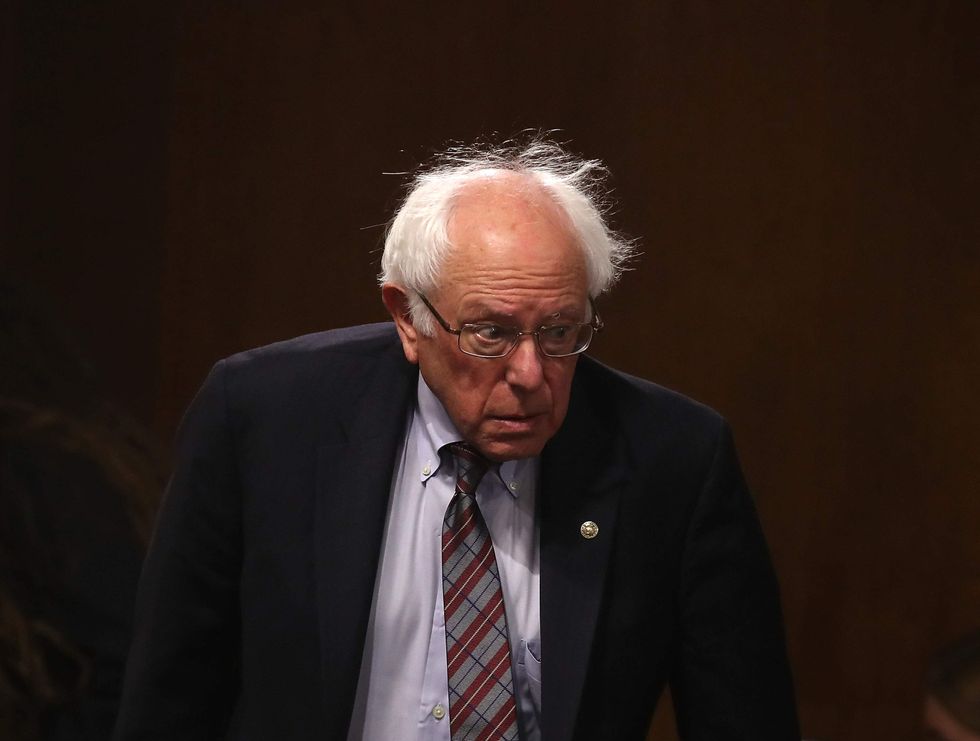
Sen. Bernie Sanders (I-Vt.) has not indicated that he will be running for president in 2020, but he appears to be laying the groundwork for a possible White House bid. (Mark Wilson/Getty Images)

According to Politico, several Bernie Sanders advisers have acknowledged that a series of recent moves by the Vermont senator might be laying the groundwork for a possible 2020 White House bid.
According to Politico, Sanders has been working diligently to shore up his relationship with the Democratic Party establishment, including outreach to prominent party figures and key leaders of the Democratic voter base, which includes labor leaders. Sanders has also been working to shore up his foreign policy credentials, which were perceived as a weakness in the contentious 2016 Democratic primary that was ultimately won by Hillary Clinton.
Sanders will turn 79 in 2020. The oldest person to ever win a presidential election was Ronald Reagan, who was 73 when he won re-election in 1984.
President Donald Trump, who will almost certainly be the Republican Party’s nominee, will turn 74 in 2020.
Sanders’ relationship with the party’s establishment was contentious at best during his 2016 presidential campaign. Democratic insiders, including former interim party Chair Donna Brazile, have alleged that the party establishment had their finger on the scales in favor of Clinton during the 2016 Democratic primary due to dependence on Clinton’s fundraising ability for the party.
Also, Sanders ran in 2016 with virtually no support from elected Democrats. Only one Democratic senator and a handful of representatives endorsed his campaign. He was additionally hampered by an almost total lack of support among Democratic “superdelegates” at the party’s nominating convention.
It is doubtful, however, that these weaknesses caused Sanders’ loss. The primary reason Clinton defeated Sanders is that she got many, many more votes than he did. All told, Clinton defeated Sanders by almost 3 million votes — or by more than 12 percent. Given this overwhelming margin, it seems unlikely that the result from 2016 would have changed even if the Democratic establishment had been on Sanders’ side.
Still, Sanders emerged from the 2016 election as one of the brightest stars for the Democratic Party, so the support of party establishment couldn't hurt, if he does decide to run again.
Sanders isn’t saying. He has publicly stated that he won’t rule out a run, but he isn’t committing to one, either. And as Sanders’ aides noted to Politico, many of Sanders’ actions are consistent with someone who is just trying to raise his profile as a leader in the Senate, as opposed to someone who plans to run for president again.
Ultimately, only time will tell. At the very least, it appears that Sanders is keeping his options open.